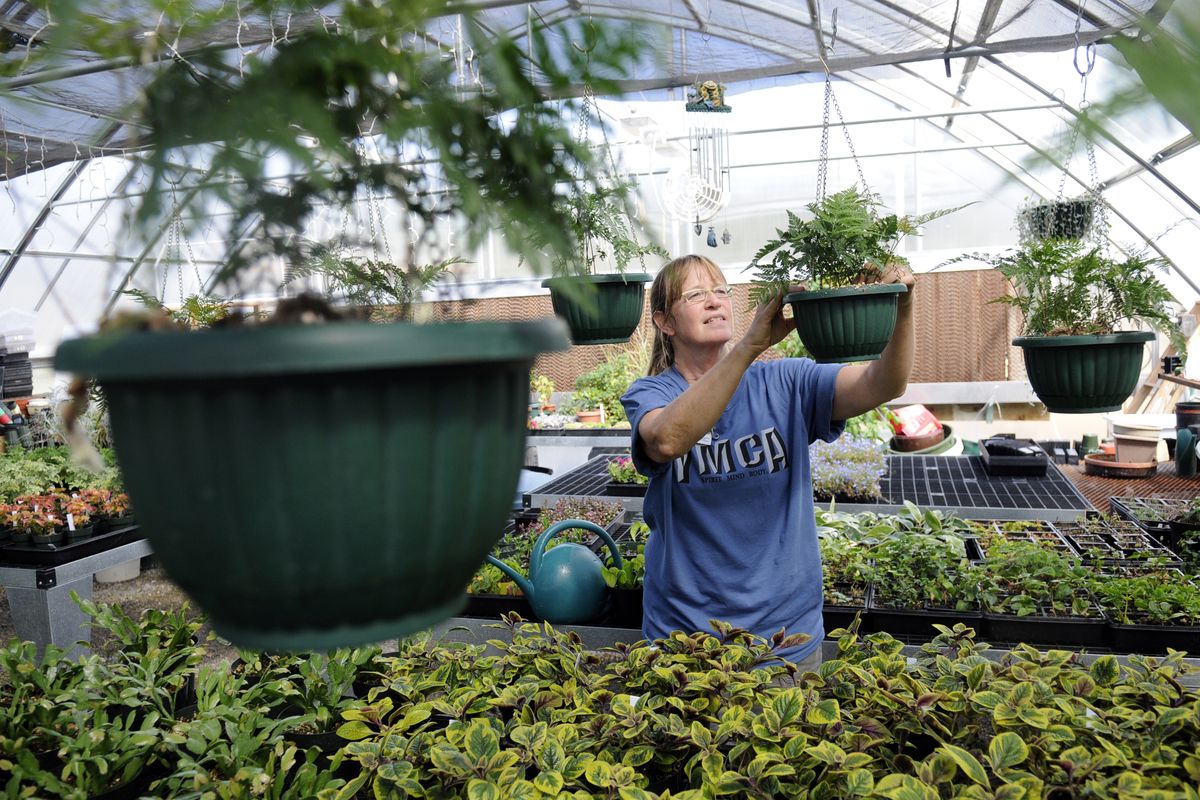Winter of content
Houseplants help green thumbs endure winter

It’s hard to believe this gardening season is rapidly coming to a close. If you dread the thought of hanging up your garden gloves for the winter, a simple solution is to switch to indoor gardening with houseplants.
“Houseplants are great because they bring the outdoors inside, especially when we really need some green,” says Ann Jackson-Avery. “They help filter toxins out of our air and give us a sense of well-being.”
As supervisor of the Spokane Valley YMCA greenhouse and the former manager of Manito Park’s Gaiser Conservatory, she knows a thing or two about houseplants.
Even though houseplants can be purchased just about anywhere, many folks are less than successful at growing them. According to Jackson-Avery, the most common problems are watering too much or not enough, not giving a plant the right amount of light, not taking care of plant pests and using the wrong size pot.
The first and most important step is to know what type of plant you have.
“Read about it and find out what it needs by researching in books or on the Internet, or contact your local Master Gardeners,” she says.
The second step is to learn proper watering techniques.
“Over-watering usually occurs when folks just water their plants on a schedule and under-watering is a result of not watering the whole surface of the pot,” Jackson-Avery explains. “It’s so much better to feel the soil with your fingers or you can use a water meter.”
Plants that need higher humidity – tropical plants, African Violets, spider plants and orchids – can be set on trays filled with gravel and a small amount of water.
Giving plants adequate light is very important. Jackson-Avery prefers fluorescent lights because they won’t burn the plants like incandescent bulbs can. She also keeps an eye on the amount of sunlight her house gets during the day throughout the seasons and either moves the pots or adjusts the indoor lighting accordingly.
While insects like spider mites, aphids, scale and whiteflies can attack houseplants, this doesn’t happen very often. They usually were already on the plant at the time of purchase or they climbed onto the plant if it was moved outdoors during the summer.
Jackson-Avery uses a handheld shower nozzle to keep her plants clean and advises monitoring them frequently to catch problems early. There are also insecticidal soaps and other products specifically labeled for use on houseplants.
As a houseplant grows, it will occasionally need to be repotted. The best time of year for this is in the spring or early summer. Choose a new pot that is one size larger than its current one and use a good quality potting soil.
“At that point, take extra care in watering the plants as they usually won’t dry out as quickly as when they were pot-bound,” Jackson-Avery advises.
Plants should be fertilized during the warmer months. During the colder months, houseplant care varies somewhat.
“Most plants will go dormant, or they will not grow as much because there will be less light, so little or no fertilizer is needed,” Jackson-Avery explains.
Since the air in most homes tends to be dry during the winter, the plants’ water needs should be monitored closely. Keep an eye on the amount of light in your home and adjust it based on the plants’ needs.
Jackson-Avery doesn’t underestimate the important role houseplants play in our homes.
“They are living, breathing organisms with which we share this Earth,” she says. “They truly connect us back to nature.”